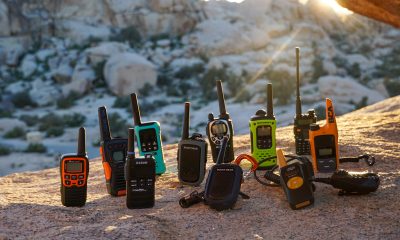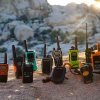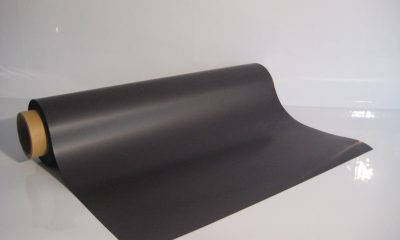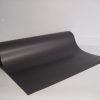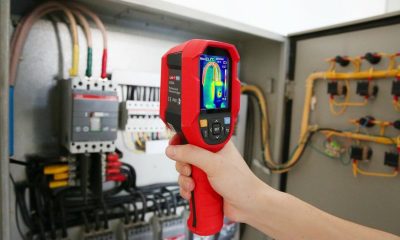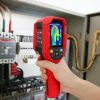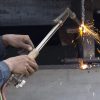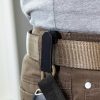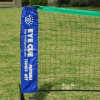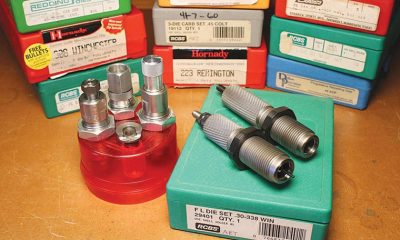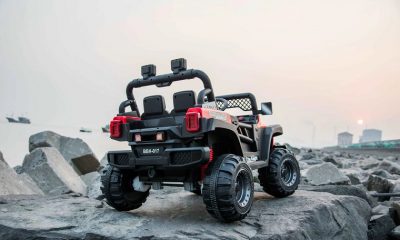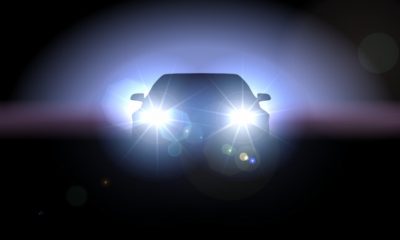Tech & Gadgets
Benefits of LED: Choosing the Right Flashlight For Your Needs
If you’re preparing for your next trip in the great outdoors and have just noticed that the bulky flashlight that you bought over a decade ago has run out of batteries, it’s probably time to reconsider the usage of this tool and get a new, more sophisticated one. One that’s not only more affordable than the one you bought way back but is also infinitely more powerful and packed with some great features. You’d be happy to hear that there are hundreds of different brands nowadays, most of which produce quality torches that are meant to withstand the harsh Australian outdoors.
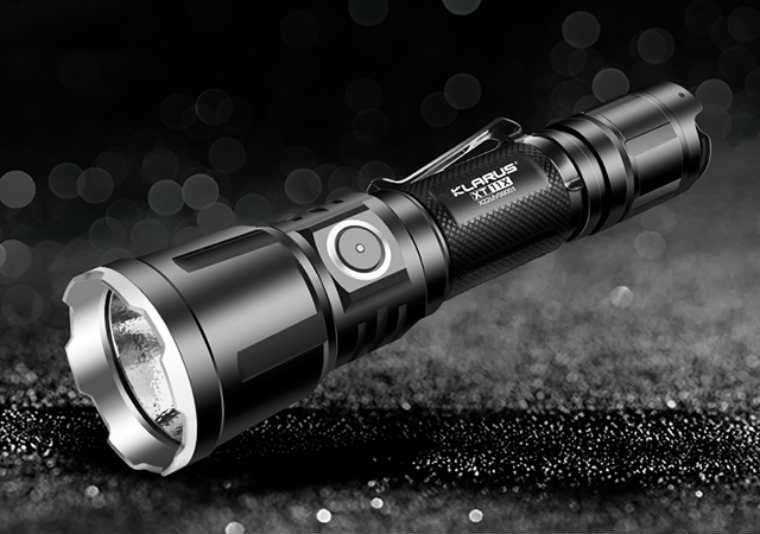
And while this means you’ll have a wide range of choices to pick from, it also means that you may have a harder time picking the right one. Names such as Olight, NiteCore, LED Lenser and Klarus flashlight brands that feature a large selection of high-quality torches that are suitable for use in rugged conditions. While your ideal flashlight will depend on personal preference, budget and activity, there are some general things that you need to take into account when shopping to narrow down your choices and have an easier time picking the best one.
For instance, you need to make sure the flashlight is waterproof so that you can use it in all types of weather. Additionally, you’ll want it to be durable, but not heavy so that you can carry it around for extended periods of time. The ability to switch between different lighting modes is also very convenient as you can adjust to the type of beam and level of brightness you need, and of course, the type of batteries should be either lithium-ion or NiMh. Luckily, most Olight, NiteCore, LED Lenser and Klarus flashlight models have all of the aforementioned features, so it’s up to you to decide which one you like best.
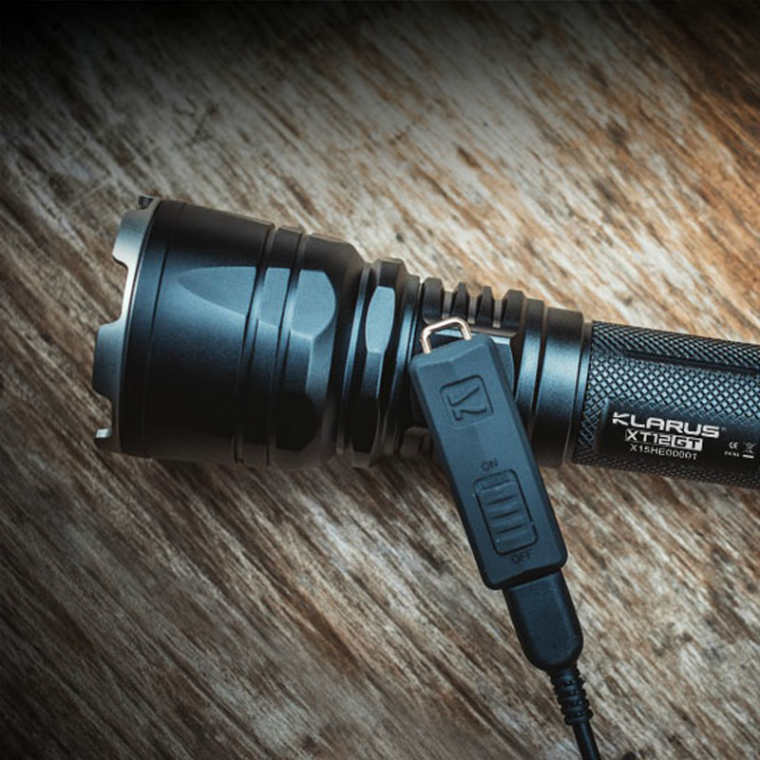
Most modern torchlights use light-emitting diode (LED) technology, because it’s the most energy-efficient type of bulb. Typically, LED bulbs use about a tenth of the energy used by their filament and halogen counterparts, while emitting the same amount of light, or more. Further, they can operate for hours, if not days, using the same pair of batteries. Additionally, the average LED bulb has the life span upwards of 50.000 working hours, whereas filament bulbs start fizzling out at about 3.000 hours. Having said that, any LED-powered torch you choose will probably provide you with many years of service. Modern flashlights come in a wide range of shapes and sizes.
If you need one that’s for holiday or day-to-day use, then you should consider a pocket model. These are quite small in length but still provide sufficient light to see where you’re headed. They are quite affordable as well, and most of them come with a range of beam strengths, from just a few dozen lumens to about a thousand, and may have features such as strobe and SOS signalling. On the other hand, if you’re in need of an outdoor model, then consider getting something slightly larger and more powerful, with about 1000 lumens or more. Outdoor models should also provide you with a few focus options, including wide and narrow focus beams. You can also opt for a hands-free type of illumination in the form of headlamps, especially if you’re climbing, caving or running on a hiking trail. If you’re a hunter, work in security or rescue, then you’re going to need a flashlight that features floodlight-like capabilities, with over 1500 lumens. These models, although heavier and longer than others, can turn darkness into day with the push of a button. Additionally, they can be set to provide a sharp beam from a kilometre away, or a super-wide beam that can illuminate a whole stadium.
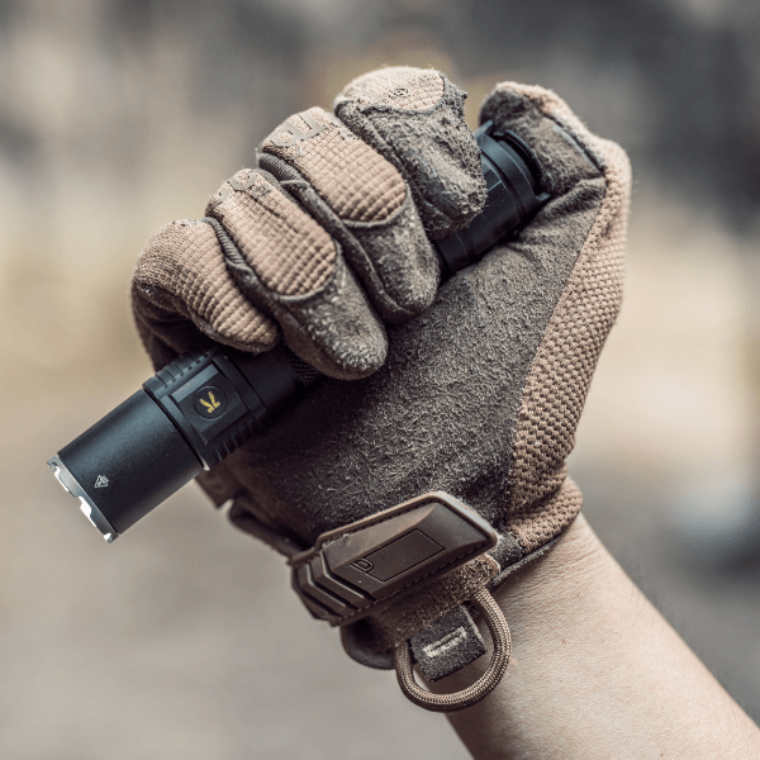
As aforementioned, most modern flashlights feature rechargeable batteries, as they’re the better long-term option. However, that may not be the case for everyone. If you’re only an occasional user, it might make more sense to get disposable alkaline batteries, as they’re more affordable. However, disposable batteries aren’t an environmentally-friendly solution, and if you’re a frequent user, it doesn’t make sense to keep replacing them. Nowadays, you can find lithium-ion and NiMH batteries that can easily be recharged with a convenient micro-USB cable that you can attach to a portable power bank, a computer or a mains source. But keep in mind that rechargeable batteries are not just more expensive, but for them, you’ll also need to purchase a charger.
As you can see, picking the best flashlight mostly comes down to personal preferences and intended use, so you really only have to consider your needs and then follow some of the aforementioned guidelines. Buying from a reputable manufacturer is something that you should also take into account, because even though you may end up paying an extra buck, at least you’ll know you have a reliable light source wherever you go, that’s likely backed with a good warranty and has readily replacement parts available if you happen to break something.
Writing for the blog since 2012, Chris simply loves the idea of providing people with useful info on business, technology, vehicles, industry, sports and travel – all subjects of his interest. Even though he sounds like quite the butch, he’d watch a chick flick occasionally if it makes the wife happy, and he’s a fan of skincare routines though you’d never have him admit that unless you compliment his impeccable skin complexion.



